Pandora's Promise est un film américain de genre Documentaire
Pandora's Promise (2013)
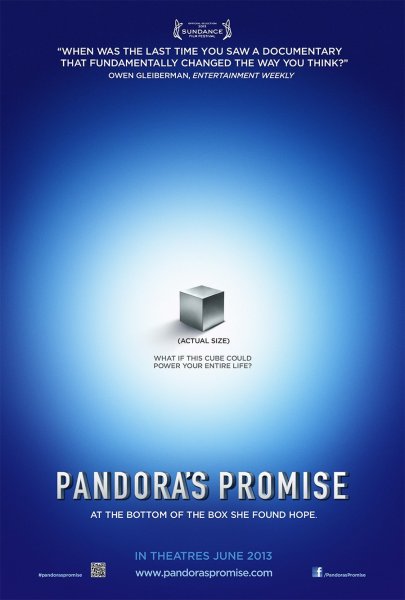
Si vous aimez ce film, faites-le savoir !
- Infos
- Casting
- Infos techniques
- Photos
- Vidéos
- Passages TV
- Citations
- Personnages
- Musique
- Récompenses
Durée 1h27
OrigineEtats-Unis
Genres Documentaire
Themes L'environnement, Documentaire sur l'environnement, Documentaire sur le nucléaire, Documentaire sur les technologies
Note72%










Pandora's Promise is a 2013 documentary film about the nuclear power debate, directed by Robert Stone. Its central argument is that nuclear power, which still faces historical opposition from environmentalists, is a relatively safe and clean energy source which can help mitigate the serious problem of anthropogenic global warming. The title is derived from the ancient Greek myth of Pandora, who released numerous evils into the world, yet as the movie's tagline recalls: "At the bottom of the box she found hope."
Commentaires
Postez un commentaire :
Suggestions de films similaires à Pandora's Promise
Il y a 8860 ayant les mêmes genres cinématographiques, 1033 films qui ont les mêmes thèmes (dont 62 films qui ont les mêmes 4 thèmes que Pandora's Promise), pour avoir au final 70 suggestions de films similaires.Si vous avez aimé Pandora's Promise, vous aimerez sûrement les films similaires suivants :

Black Wind, White Land (1993)
, 53minutesGenres Documentaire
Thèmes L'environnement, Documentaire sur l'environnement, Documentaire historique, Documentaire sur le nucléaire, Documentaire sur les technologies, Film catastrophe
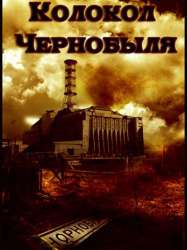
Колокол Чернобыля (1987)
Genres Documentaire
Thèmes L'environnement, Documentaire sur l'environnement, Documentaire historique, Documentaire sur le nucléaire, Documentaire sur les technologies, Film catastrophe
Note67%





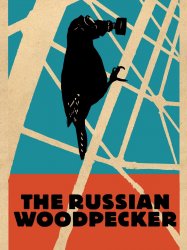
Le Pic-vert russe (2015)
, 1h20Origine Etats-Unis
Genres Documentaire, Historique
Thèmes L'environnement, Documentaire sur l'environnement, Documentaire historique, Documentaire sur le nucléaire, Documentaire sur les technologies, Film catastrophe
Note66%





Le jeune artiste ukrainien Fedor Alexandrovitch et le réalisateur Chad Gracia enquêtent sur la catastrophe de Tchernobyl : et si ce n'était pas un accident ?

The Unnamed Zone (2006)
, 1h20Réalisé par Carlos Rodríguez
Genres Documentaire
Thèmes L'environnement, Documentaire sur l'environnement, Documentaire historique, Documentaire sur le nucléaire, Documentaire sur les technologies, Film catastrophe
Note63%





The Spanish film crew led by Carlos Rodriguez is following the life stories of three children - Lidia Pidvalna, Anastasia Pavlenko, and Andriy Kovalchuk - whose lives were drastically changed after an explosion at the Chernobyl Nuclear Power Station on April 26, 1986. Through the documentary, the children and their families "living perilously close to the exclusion zone around the destroyed station recount their fears, dreams, fantasies, and hopes for the future." Each child holds a "Chernobyl certificate" which bestows access to government grants and aid and is a gruesome reminder of their existential reality.
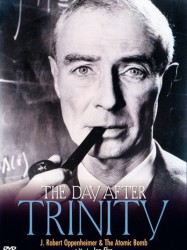
The Day After Trinity (1981)
, 1h28Origine Etats-Unis
Genres Documentaire, Historique
Thèmes L'environnement, Documentaire sur l'environnement, Documentaire sur la guerre, Documentaire historique, Documentaire sur le nucléaire, Documentaire sur les technologies
Acteurs Paul Frees
Note77%





Ce film documentaire a été réalisé et produit par John Else en association avec la chaîne de télévision publique KTEH de San José (Californie). Le film raconte l'histoire de Robert Oppenheimer (1904–1967), le physicien qui joua un rôle prépondérant dans le développement de la première bombe atomique, testée en juillet 1945 au centre d'essai nucléaire de Trinity au Nouveau-Mexique.

Into Eternity (2010)
, 1h15Réalisé par Michael Madsen
Origine Italie
Genres Documentaire
Thèmes L'environnement, Documentaire sur l'environnement, Documentaire sur le nucléaire, Documentaire sur les technologies
Note72%





La génération d'électricité via les centrales nucléaires produit des déchets dont on ne peut se débarrasser aisément et qu'on ne peut rendre inoffensifs. On estime aujourd'hui leur quantité à plus de 250 000 tonnes. Plusieurs solutions ont été considérées, telles que leur éjection hors de l'atmosphère terrestre, mais aucune ne présente à la fois un caractère durable et sûr. Invisible à l'œil nu, les radiations rendent ces matériaux dangereux sur une période d'au moins 100 000 ans. La majorité d'entre eux sont actuellement stockés dans des bassins remplis d'eau qui bloquent les radiations. Cependant, cette solution ne peut être que temporaire.
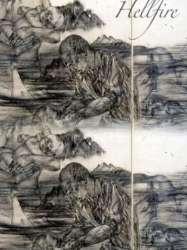 , 58minutes
, 58minutesRéalisé par Michael Camerini, John Junkerman
Origine Etats-Unis
Genres Documentaire
Thèmes L'environnement, La mer, Transport, Aviation, Documentaire sur l'environnement, Documentaire sur la guerre, Documentaire historique, Documentaire sur le nucléaire, Documentaire sur les technologies, Politique, Documentaire sur la Seconde Guerre mondiale
Note69%





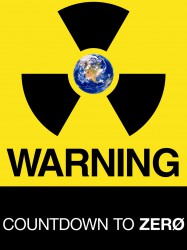
Countdown to Zero (2010)
, 1h30Origine Etats-Unis
Genres Documentaire
Thèmes L'environnement, Documentaire sur l'environnement, Documentaire sur la guerre, Documentaire historique, Documentaire sur le nucléaire, Documentaire sur la politique, Documentaire sur les technologies, Politique
Acteurs Gary Oldman
Note68%






My Atomic Aunt (2013)
Genres Documentaire
Thèmes L'environnement, La mer, Transport, Documentaire sur l'environnement, Documentaire historique, Documentaire sur le nucléaire, Documentaire sur les technologies, Film catastrophe, Catastrophe sismologique
Note67%





Surviving the Tsunami brings together social, environmental, and personal perspectives of the national catastrophe of the Fukushima nuclear meltdown. In the documentary, Kyoko Miyake travels back to her hometown in Namie, Fukushima, to revisit her old life and assess the trauma still lingering from the disaster. She revisits Namie, her mother's hometown and meets the people who depended on the success of the nuclear plant for their livelihood. The film also follows Bunsei Watanabe and Kyoko Miyake's Aunt Kuniko, two people who hope for the rejuvenation of Namie, despite the disaster that has occurred. Despite having lost family, friends, and jobs due to the meltdown and subsequent fear of the contamination zone, these two individuals are determined to rebuild their towns and neighborhoods and bring back the sense of community they once had. The film follows the residents of Namie, with emphasis on the experiences of Aunt Kuniko, as they come to terms with the reality of living in or near the "radiation zone" left in the wake the plant's nuclear meltdown. Surviving the Tsunami offers a different perspective on Japanese culture, national identity, human adaption, and global nuclear energy and proliferation.

White Horse (2008)
, 18minutesOrigine Etats-Unis
Genres Documentaire
Thèmes L'environnement, Documentaire sur l'environnement, Documentaire historique, Documentaire sur le nucléaire, Documentaire sur les technologies, Film catastrophe
Note69%





The beginning of the film starts with DeLeo, Bisson and Surkov driving through Kiev. This is introduced as the beginning of their journey to Pripyat, near the ground zero of Chernobyl. Once they reach the outpost outside the exclusion zone, we see that the area surrounding Pripyat is very deserted and dark. Once in the city, we see Surkov's old home, which he explains has been robbed of almost all its belongings due to looters. Yet there are still some mementos in the old apartment, including the wallpaper he and his mother put up, the training bars his father bought for him, an old rubber ball he claims was his favorite and a white horse poster plastered on the wall of his old bedroom. The pain he feels is evident. When he sees an old calendar on a door, he rips a large portion off, claiming "the year ended on April 26th". Outside the door of the apartment, he remarks how he wishes he could stay forever. He throws his old ball through the door and walks out of the apartment complex. The film ends with Surkov snapping some twigs in an old courtyard and then an image of the car they traveled in leaving the exclusion zone.
 Connexion
Connexion